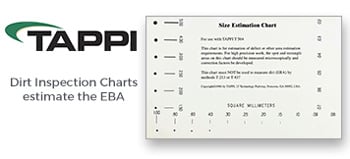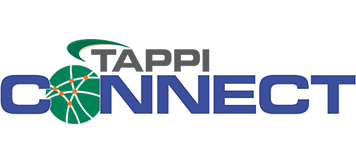Employee engagement surveys empower office depot's employees, Solutions!, Online Exclusives, September 2004
EMPLOYEE ENGAGEMENT SURVEYS EMPOWER OFFICE DEPOT’S EMPLOYEES
By Bill Erickson, Kenexa
How did one of the world’s largest sellers of office products cultivate a positive work culture while continuing to focus on expansive company growth? Understanding that committed employees perform better, Office Depot turned to an automated employee engagement solution to deliver on the corporate mission to establish a high-performance organization with superior leadership ability.
Founded in 1986 and headquartered in Delray Beach, Fla., Office Depot has 1,099 stores and conducts business in 23 countries, employing nearly 50,000 people worldwide. Annual sales are nearly US$12 billion.
Office Depot’s commitment to delivering "fanatical customer service" is reflected in its efforts to establish a dedicated and engaged workforce. Knowing that engaged employees tend to have a higher retention rates, stronger level of sales, deliver better customer satisfaction and are more committed to the organization, Office Depot put in place a paper-based solution that would help identify employee attitudes and perceptions. However, this paper-based system had its limitations. As Office Depot experienced growth, managing the old system and tracking employee satisfaction became cumbersome and incredibly time consuming. As a result, it was difficult to use the information to effectively identify issues and opportunities.
Improving the use of information collected during the survey process was a key driver in selecting Wayne, Pa.-based Kenexa to improve the employee engagement process. Kenexa provides a suite of comprehensive Web-based talent management solutions and applications for talent acquisition and performance management.
In 2000, Office Depot began using Kenexa Employee Engagement Surveys to more effectively measure how engaged employees are and to create action plans based on those measurements. The way employees view the company’s culture, leadership, and their own experience at work has been shown to have a definite impact on the level of service they are able to provide to customers. Plus, Employee Engagement Surveys empower employees by providing them with a non-threatening venue to share their thoughts, perceptions and opinions on various issues or themes across the organization.
"We consistently elicit the support of employees at all levels toward the relentless improvement of our business," said Hank McNeely, director, employee programs and services. "Measuring how engaged employees are in their experience at Office Depot gives us diverse viewpoints to better understand our challenges, what progress we have made and what actions we need to take as an organization."
McNeely notes many positive occurrences over the past four years, since the company began using the Kenexa solution. The company was able to develop a standardized set of well-thought-out questions that wouldn’t change dramatically from year to year. By standardizing the questions, Office Depot is able to more effectively measure how engaged employees are in what they are doing. Conducting effective employee feedback meetings and helping employees develop action plans based on those meetings is another advantage in using the automated solution.
"There have been some challenges with distributing things like electronic passwords, but we have rapidly learned from our first attempts," notes McNeely. "We have improved our survey instructions and the password distribution process and have removed any frustration from the process. Generally our employees feel more positive about the company’s leadership, as well as our emphasis on always delivering fanatical customer service. Employees feel that they know what is expected of them in their job, which is a result of better communication."
Boosting confidence and building credibility in the survey process has been another benefit realized through the Kenexa Employee Engagement Survey solution. Now, employees are assured that their answers are confidential and managers are given relevant information that can help employees develop leadership skills as well as address other employee concerns.
While the Kenexa solution has improved their survey process, McNeely notes that the most dramatic difference in employee engagement comes from the action plans developed from the information gathered.
"When considering an automated Employee Engagement Survey, organizations need to think carefully about what information is most important to learn about their employees and then prioritize the follow-up and action planning process accordingly," said McNeely. "Our employees recognize the value in the process because they understand what is expected of them, are involved in
decisions in their work area and are recognized for their contributions."
Recognizing employees for a job well done is part of the corporate philosophy at Office Depot—praising employees publicly and providing constructive feedback privately. In turn, employees appreciate the opportunity to share their thoughts and opinions and are empowered by contributing to the process. Based on the information gathered through the survey process, management is able to design recognition programs that reflect the organization’s needs.
Understanding employee perceptions, especially those driving positive work behaviors, and establishing action plans based on that information has improved customer relations, allowing Office Depot to deliver on their commitment to provide fanatical customer service.
"Establishing Employee Engagement Surveys as an annual event has given Office Depot an effective means of identifying issues and opportunities that may become part of company-wide strategic initiatives," said McNeely. "By tracking employee attitudes and perception, we have been able to implement culture changes that directly impact organizational performance and customer satisfaction levels."
About the author:
Bill Erickson is vice chairman of Kenexa, and has more than 20 years of experience in research, organizational development and leadership consulting. Prior to Kenexa, he was executive vice president of a market research firm and co-founder of Human Resource Innovations. He holds a bachelor’s degree in psychology from the University of Nebraska.





